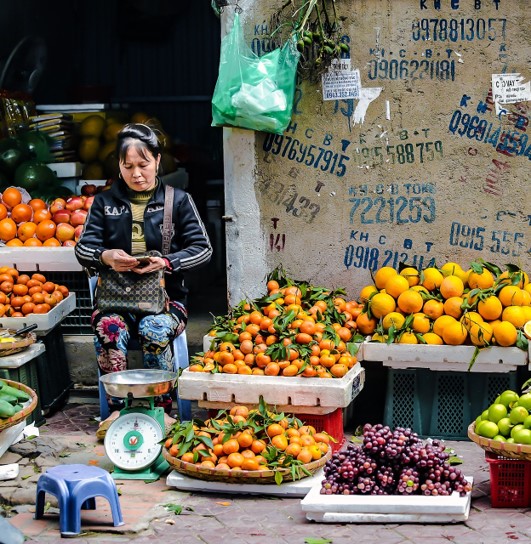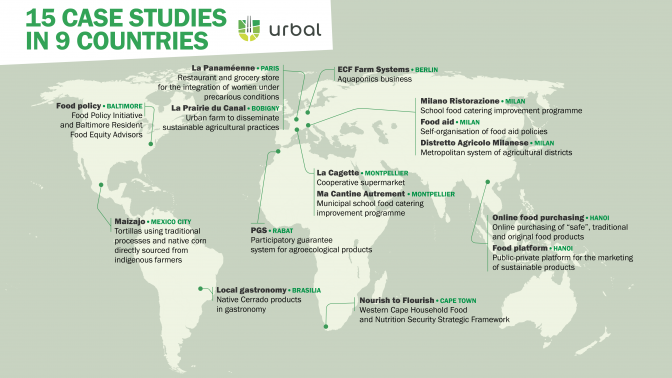URBAL
Urban-driven Innovations for Sustainable Food Systems
The dominant food systems and diets in affluent areas of the planet have numerous negative consequences from environmental, health, social, and political perspectives. These problems give rise to questions about sustainability in a context of worldwide population growth. Urban food systems, which concentrate production needs but not production capacity, engender particularly critical questions. In an effort to confront these questions, large cities from all across the world signed the 2015 Milan Urban Food Policy Pact (MUFPP). Indeed, there has been a growing sense that solutions for more sustainable food systems will be found at a local scale. These cities are bristling with initiatives and experiments. But how to accompany them in an effort to expand the scale and transition toward improved sustainability ? How contribute to the assessment of these social innovations’ impact on food systems’ sustainability?

Goals
The main objective of the URBAL project is to develop and test a participatory methodology to identify and map the impact pathways of innovations on all dimensions of food system sustainability. By testing this methodology through various international case studies, including in the South and the North, this project aims to provide decision-makers with information on how urban innovations can contribute to building more sustainable food systems, thus helping them determine what actions to take or not to take.
Actions
In the first stage of the project, a participatory methodology is specified based on four main themes:
(a) Stakeholders involved in impact pathway mapping.
b) Dimensions of sustainability using specifications based on a holistic approach to sustainability.
c) Contextual elements that need to be taken into account.
d) Discussion rules that are proposed for participatory mapping.
In a second step of the project, the first version of the methodology is tested on different innovations (case studies). The case studies are grouped into 3 work packages corresponding to the 3 types of impacts: on consumer practices, on the value chain and on governance.

Results
A new methodology, based on participation, tested through the case studies to be easily appropriated by public authorities and innovation actors; 16 case studies of urban innovations where impact pathway mapping has been completed; 16 teams in 8 cities that are able to provide a map of the impact pathways of innovations or policies on the different dimensions of sustainability.

Prospects
A better ability to quickly and simply assess the impacts of innovations on the different dimensions of sustainability thanks to a holistic view of the dimensions of sustainability.
- Call for project
- Start date :1 January 2018
- Closing date :31 December 2020
- Flagship project :yes
- ResponsableElodie Valette
- elodie.valette@cirad.fr
-
Research units in the network
ESTÀ - Economia e Sostenibilità
Wilfrid Laurier University



